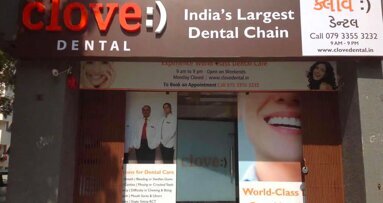This article is Part 2 in our series on dental litigation in India. In Part 1, we examined the rising trend of dental litigations and the increasing legal and ethical pressures on practitioners. We also explored the key factors fueling this surge and the often-overlooked costs of litigation. In this follow-up, we focus on practical strategies to protect your dental practice, outlining essential steps you can take to reduce legal risks, strengthen patient trust, and safeguard your professional reputation.
Indian consumers are becoming increasingly aware of their rights and are now taking action against medical negligence more than ever. Nearly 5.2 million medical negligence and malpractice cases are filed in India each year. 1 Dentists, too, are facing a growing number of lawsuits with claims that can amount to several lakhs of rupees. Previously, we had discussed the reasons for the same. In this article, we will address the steps to safeguard against litigation.
The critical need for protection
The need for professional protection has never been clearer. The current scenario raises critical questions: How can dental practitioners safeguard their careers and livelihoods?
The answer lies in a two-pronged approach: comprehensive documentation and professional indemnity insurance.
The foundation of protection: meticulous documentation
One of the major reasons for litigation is the lack of information or dissatisfaction with the outcome of the procedure. Hence, it is imperative to ensure every patient has been thoroughly informed about all diagnoses, procedures, and outcomes. Basic or incomplete consent will no longer hold in court, especially for high-risk, high-stakes procedures.
"From a legal perspective, signed consent forms frequently face challenges in courts and consumer forums, being contested as hasty, lacking proper information, or inadequately explained," observes Adv. Yashpalsinh Boradhara, a Contracts and Dispute Resolution specialist from Mumbai. He advises the following protective measures:
- Video consent documentation
In addition to robust paperwork, consider recording brief videos that explain both the procedure and the consent process, particularly for high-risk, expensive procedures. An existing CCTV system with audio capability would suffice for this purpose.
- Built-in dispute resolution
Include a provision for dispute resolution and amicable mediation. Any disputes related to the consent form should initially be addressed through internal discussions and escalated to higher authorities for good-faith resolution attempts, followed by neutral mediation if needed.
This approach demonstrates the dentist's genuine commitment to addressing patient concerns and resolving issues amicably. Such clauses can significantly reduce litigation costs while showing courts that the practice prioritises patient satisfaction and fair resolution of disputes.
- Staff training documentation
Maintain comprehensive documentation of all staff training programs, standard operating procedures, and emergency protocols as a protective measure. Courts frequently hold doctors “vicariously liable” (legally responsible) for staff negligence and misconduct. Proper documentation of relevant training programs may help mitigate this liability risk.
The added layer of safety: Professional Indemnity Insurance
While thorough documentation forms the first line of defence, it may not provide complete protection in today's legal scenario. This is where Professional Indemnity Insurance (PII) becomes crucial.
- What is Professional Indemnity Insurance?
PII protects dentists financially if a patient sues, claiming they made an error, were negligent, or provided the wrong treatment. Depending on the policy inclusions, it covers legal costs and any compensation that has to be paid.
Several dentists have already recognised this need. "As a dedicated dentist, I strive to provide the highest standard of care for my patients. Yet, unforeseen errors beyond my control can lead to unintended outcomes. Professional Indemnity Insurance offers me the essential support to practise confidently and with peace of mind," explains Dr Perola Menon, a private practitioner and Fellow of the ISOI from Mumbai.
Despite growing litigation risks, awareness of indemnity insurance remains low among practitioners - about 50% of dentists practising in India are unaware of it. Of those aware, only a small percentage have opted for coverage. 2
Common misconceptions include:
- Believing that only surgeons or specialists need insurance
- Concluding that insurance is too expensive for solo practitioners
- Fearing that insurance will attract frivolous lawsuits
- Assuming non-mandatory means unnecessary
The reality is that any dentist, regardless of specialty or experience, can face legal action. Moreover, the cost of individual insurance premiums is minimal compared to the potential financial devastation from an uncovered claim.
Legal scenario and requirements
Under the Consumer Protection Act, dentists are classified as "service providers," making them liable for compensation in cases of proven negligence or deficiency in service.
Currently, PII is not legally mandated for dentists in any Indian state. However, the Dental Council of India strongly advocates adhering to its Code of Ethics to uphold professional standards and safeguard dental practice.
The Indian Dental Association launched the first PII for dentists in India in 2012, and currently, several reputed insurance companies offer customisable PII solutions.
"Even with the utmost care, errors can occur, or patients may claim harm. I strongly believe every dentist should have Professional Indemnity Insurance tailored to their practice. It's essential for our protection," says Dr Rucha Kadam, a certified aesthetic and general dentist from Mumbai.
In Western countries, including the US and the UK, more than 90% of dental practitioners are insured, largely because it's a compulsory condition for registration and practice. India has significant ground to cover, especially as consumers become more aware of their rights and willing to pursue legal action.
Understanding your coverage
PII is designed to protect you against claims of negligence, errors, or omissions in the course of your professional duties. A PII premium tailored to your needs can offer coverage far exceeding its cost.
Like all insurance policies, there are specific inclusions and, more importantly, certain exclusions to be aware of:
| Inclusions |
Exclusions |
| Legal defence costs: Lawyer fees, court expenses, and all litigation-related costs |
Wilful or intentional acts: Deliberate harm or gross negligence incidents |
| Compensation amounts: Settlements and court-awarded damages to claimants |
Criminal activities: Claims arising from illegal acts or fraud |
| Loss of income: Time taken off work to pursue legal proceedings |
Practising under the influence: Alcohol or drug-related incidents during treatment |
| Regulatory investigation costs: Expenses for defending against investigations by a professional body |
Outside the scope of practice: Treatments beyond the dentist's qualified expertise |
|
Prior-known incidents: Claims for events that occurred before policy purchase |
|
Loss of reputation/goodwill |
Selecting the right protection
PII is not a one-size-fits-all solution. When selecting your insurance, consider these key factors:
1. Assess your risk profile
- Urban practices may face more claims than rural ones
- High-risk procedures (cosmetic, implants, surgeries) need higher coverage
2. Evaluate insurer credentials
- Look for high claim settlement ratios and responsive customer service
3. Understand coverage details
- Know exactly what's covered and what's excluded
- Pay special attention to exclusions that might affect your practice
4. Consider additional benefits
- Some policies offer cyber liability coverage, staff coverage, or retroactive protection
5. Seek professional guidance
- Consult an insurance advisor familiar with healthcare and dental risks
The way forward
To strengthen protection for dentists in India, several steps are essential:
- Regulatory evolution: The Dental Council of India could consider mandating Professional Indemnity Insurance as a prerequisite for registration and licensing
- Risk mitigation practices: Dentists should ensure comprehensive informed consent, maintain digital records, and train support staff adequately
- Scope adherence: Strictly adhere to areas of expertise and avoid treatments outside one’s training
- Educational integration: Incorporate PII and risk management education into dental curricula
Your practice, your future
In today's litigious environment, risk management is as crucial as your dental licence. Don't wait for a lawsuit to realise the value of protection.
Following the Code of Ethics and robust documentation is mandatory. Additionally, Professional Indemnity Insurance offers essential legal, financial, and reputational protection. It provides peace of mind, allowing you to focus on patient care and build your reputation without constant fear of litigation or financial loss.
Choose your policy carefully, understand the exclusions, and review your coverage regularly. Consult a trusted insurance advisor or your local dental association for guidance tailored to your practice.
References
- Rai S, Devaiah VH. The need for healthcare reforms: Is no-fault liability the solution to medical malpractice? Asian Bioeth Rev. 2019;11(1):81-93. doi:10.1007/s41649-019-00081-7
- Gambhir RS, Aggarwal R, Aggarwal *Amit, Aggarwal A, Kaushal N, Kaur R. Knowledge and awareness of dental professionals regarding Professional Indemnity Insurance (PII) in India- A systematic review. Niger Med J. 66(1):1-12. doi:10.71480/nmj.v66i1.588
Topics:
Tags:
Dental litigation is on the rise in India, placing growing legal and ethical demands on practitioners. This article explores the key factors driving this ...
KUALA LUMPUR, MALAYSIA: Dental implants have revolutionized the replacement of missing teeth by creating ideal outcomes with regards to aesthetics and ...
Artificial intelligence (AI) has emerged as a game changer in various industries, and oral healthcare is no exception. In recent years, AI has been ...
Clove Dental, the most prominent dental clinic chain in Asia aims to become the world’s most extensive and most loved dental brand. We interview Amar ...
LONDON, UK: Over the last decade, internationally qualified dentists (IQDs) have made up an increasingly large proportion of the UK’s dental workforce ...
As the deputy head of the department of operative and preventive dentistry at Charité—Universitätsmedizin Berlin in Germany, Prof. Falk Schwendicke has ...
Dr Baburao S Bagi (B.D.S, L.L.M) - a pioneer in Forensic Odontology and Medicolegal Research in India, left for his heavenly abode last week. Here is a ...
Live webinar
Mon. 23 February 2026
1:30 pm IST (New Delhi)
Ass. Prof. Elizabeth Shick, Dr. Zehra Yonel
Live webinar
Tue. 24 February 2026
11:30 pm IST (New Delhi)
Prof. Dr. Markus B. Hürzeler
Live webinar
Wed. 25 February 2026
1:30 am IST (New Delhi)
Prof. Dr. Marcel A. Wainwright DDS, PhD
Live webinar
Wed. 25 February 2026
9:30 pm IST (New Delhi)
Prof. Dr. Daniel Edelhoff
Live webinar
Wed. 25 February 2026
11:30 pm IST (New Delhi)
Live webinar
Thu. 26 February 2026
6:30 am IST (New Delhi)
Live webinar
Tue. 3 March 2026
9:30 pm IST (New Delhi)
Dr. Omar Lugo Cirujano Maxilofacial



 Austria / Österreich
Austria / Österreich
 Bosnia and Herzegovina / Босна и Херцеговина
Bosnia and Herzegovina / Босна и Херцеговина
 Bulgaria / България
Bulgaria / България
 Croatia / Hrvatska
Croatia / Hrvatska
 Czech Republic & Slovakia / Česká republika & Slovensko
Czech Republic & Slovakia / Česká republika & Slovensko
 France / France
France / France
 Germany / Deutschland
Germany / Deutschland
 Greece / ΕΛΛΑΔΑ
Greece / ΕΛΛΑΔΑ
 Hungary / Hungary
Hungary / Hungary
 Italy / Italia
Italy / Italia
 Netherlands / Nederland
Netherlands / Nederland
 Nordic / Nordic
Nordic / Nordic
 Poland / Polska
Poland / Polska
 Portugal / Portugal
Portugal / Portugal
 Romania & Moldova / România & Moldova
Romania & Moldova / România & Moldova
 Slovenia / Slovenija
Slovenia / Slovenija
 Serbia & Montenegro / Србија и Црна Гора
Serbia & Montenegro / Србија и Црна Гора
 Spain / España
Spain / España
 Switzerland / Schweiz
Switzerland / Schweiz
 Turkey / Türkiye
Turkey / Türkiye
 UK & Ireland / UK & Ireland
UK & Ireland / UK & Ireland
 International / International
International / International
 Brazil / Brasil
Brazil / Brasil
 Canada / Canada
Canada / Canada
 Latin America / Latinoamérica
Latin America / Latinoamérica
 USA / USA
USA / USA
 China / 中国
China / 中国
 Pakistan / Pākistān
Pakistan / Pākistān
 Vietnam / Việt Nam
Vietnam / Việt Nam
 ASEAN / ASEAN
ASEAN / ASEAN
 Israel / מְדִינַת יִשְׂרָאֵל
Israel / מְדִינַת יִשְׂרָאֵל
 Algeria, Morocco & Tunisia / الجزائر والمغرب وتونس
Algeria, Morocco & Tunisia / الجزائر والمغرب وتونس
 Middle East / Middle East
Middle East / Middle East























































To post a reply please login or register